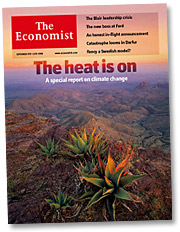Hosting the G20 in 2014 has presented Australia with many valuable opportunities to influence the global economic agenda. Transparency in global finance is an opportunity many world transparency champions are hoping to see included on the agenda of the G20 Leaders Summit this weekend in Brisbane.
The G20 Leaders Summit will see more than 4,000 delegates and 3,000 media representatives attending the most significant meeting of world leaders that Australia has ever hosted. Australia’s time as G20 president started on 1 December 2013, when it took over from Russia, and runs until 30 November 2014, when it hands over the presidency to Turkey.
Global Finance is on the Agenda
The treasurer of Australia, Mr. Joe Hockey, recently held a press conference about the G20 Leader’s Summit agenda. In it, Hockey stated, “there are many issues, many issues, that will help to drive economic growth and that will come from the structural reforms laid down before this meeting over the weekend.”
“I cannot emphasise enough, the focus on growth, on infrastructure and investment, on ensuring that multinationals pay tax where they earn the profits,” Treasurer Hockey continued. The global finance system is a big issue on the agenda, and Hockey noted the importance of drawing a line on the sand, stressing the importance of ending “the constant rewriting of regulation of the financial system of the globe. These are the sorts of things that matter out of this weekend.”
Providing Valuable Input to the G20
The G20 helps design global policies on important issues including global finance, trade and jobs. To do this, G20 leaders work with international bodies, including the United Nations, International Monetary Fund and the World Bank. Input to the G20 also comes from outside governments and international bodies. For this year’s summit, Australia has invited Mauritania and Senegal from Africa, Spain from Europe, Myanmar and Singapore from Asia and New Zealand from across the Tasman Sea.
Several engagement groups have been formed that bring together people from different sectors of society to present ideas to G20 leaders. The engagement groups are B20, representing business, C20, representing civil society, L20, representing labour groups, T20, representing think tanks and Y20, representing youth. Australian business and community leaders are also contributing to G20 discussions.
Engagement group conversations and decisions aim to help G20 leaders reach an agreement when they meet in Brisbane for the Leaders Summit. At the end of the summit, the leaders will release a Communique that spells out concrete steps they have commited to take. These steps are intended to improve their own countries’ economies, and strengthen international engagement with the major economies of the world.
Open Letter to Leaders of G20 in Brisbane
Will transparency in global finance be listed among the commitments from the G20 leaders? 25 world renowned transparency champions hope so, and have taken concrete steps to make their hopes heard. The following is the text of an open letter published this week in the run up to the G20 Leaders Summit this weekend.
An open letter to G20 leaders: ‘Put people at the heart of your decisions’
When a global financial system allows billions of dollars of corrupt or stolen money to flow unchecked around the globe, something is wrong.
When financial secrecy helps strip Africa of US $50 billion each year, something is wrong.
When the poor of this world see the wealth of their countries slip beyond their borders, something must be done.
That’s our message to you, as G20 leaders: When you take stock in November of the health of the world’s financial system, you must address the flaws that still allow the corrupt to operate with impunity and siphon off tainted monies.
In your drive to achieve a target of 2% collective growth in GDP above trend, you must remember that growth must be inclusive and sustainable and not leave anyone behind. At the Brisbane Summit you must put people at the center of your decision-making.
As long as there are places in the global financial system where illicit financial flows can find a safe harbor and there are people to help hide these funds, there will be millions more around the world who suffer. You, the leaders of the world’s largest economies must make the global financial system serve its citizens.
At least $1 trillion dollars is siphoned from developing countries each year. The perpetrators of this “trillion dollar scandal” are rarely found, nor challenged. The UN estimates that global detection rates of illicit funds by law enforcement are as low as 1%. However, there are common-sense ways to make it harder for criminals to hide the proceeds of their crimes. You have already done some of the heavy lifting.
The G20 has declared that shedding light on corporate ownership is a priority. Today anonymous companies, secrecy jurisdictions and opaque corporate ownership structures represent the primary methods used by those who are corrupt or evading tax to shift their funds and mask their identity. G20 governments must collect and publish the identity of the real, living people who ultimately own and control companies and other legal entities to make it easier to track the origin of corrupt or illicit funds. You as G20 leaders could take a bold step to unmask the corrupt by pledging to do this in Brisbane.
The G20 has agreed that profits should be taxed “where economic activities occur and value is created” to ensure that countries, especially developing countries, do not lose out on the wealth of their resources and the graft of their people. It is crucial that multinational companies are more transparent about their operations. They should publish information about revenue, profits, numbers of staff, tax liabilities and taxes paid on a country-by-country basis. This needs to be public for citizens to see the impact of companies in their communities and to make it easier to scrutinise where money is earned and where it may be going missing.
Opacity in the global financial system serves as a smokescreen to hide crime and corruption but the G20 has the opportunity to shine a light and make it harder to hide.
Lest we forget: the primary victims of organized crime, corruption, and tax evasion or avoidance are the poorest citizens of the world. Put people at the heart of your decisions in Brisbane next week.
YOURS SINCERELY
Raymond W. Baker, President, Global Financial Integrity
Winnie Byanyima, Executive Director, Oxfam International
John Christensen, Director, Tax Justice Network
Rev. Tim Costello, CEO, World Vision Australia and Chair of the Civil 20 (C20)
Jamie Drummond, Co-Founder, The ONE Campaign
Joel Edwards, International Director, Micah Challenge
Professor the Hon Gareth Evans AC QC, Chancellor, Australian National University
Matthew Frost, Chief Executive, Tearfund
John Githongo, CEO Inuka Kenya Nisisi Ltd, former Permanent Secretary, Governance and Ethics, Office of the President of Kenya
Robert Glasser, Secretary General, CARE International
Richard Goldstone, Retired Justice of the Constitutional Court of South Africa; Manzoor Hasan, Chair, UN Convention against Corruption (UNCAC) Coalition
Gavin Hayman, Executive Director, Global Witness
Tawakkol Karman, 2011 Nobel Peace Prize Laureate & Founder, Women Journalists Without Chains
Daniel Kaufmann, President, Natural Resource Governance Institute (NRGI)
Caroline Kende-Robb, Executive Director, Africa Progress Panel
Akaash Maharaj, Executive Director, Global Organization of Parliamentarians Against Corruption
Loretta Minghella, Chief Executive, Christian Aid
Alvin Mosioma, Chair, Financial Transparency Coalition
Archbishop Njongo Ndungane, President and Founder, African Monitor
Salil Shetty, Secretary General, Amnesty International
Oriana Suárez, Latin American Network on Debt, Development and Rights
Cobus de Swardt, Managing Director, Transparency International
Archbishop Desmond Tutu, 1984 Nobel Peace Prize Laureate and former Archbishop of Cape Town
Jasmine Whitbread, CEO, Save the Children.
Optimism is High as the G20 Leaders Summit Approaches
In his recent media brief, Treasurer Hockey offered words of hopeful optimism. “Australia is ready to host the most powerful delegation in the world. The leaders that are coming here represent 85 percent of the world economy. As such, there is a heavy burden on the shoulders of leaders and finance ministers to deliver on the plan to grow economic growth right across the world and therefore create jobs for millions and millions of people.”
Hockey continued, “Australia was determined at the beginning of this year to get real outcomes from the very significant investment necessary to host the world’s leaders. We have a plan before the leaders of the world to grow the world economy, to create the jobs that are necessary, to lift people out of poverty and we are determined to deliver that.”
One of the final questions Treasurer Hockey answered in the briefing was regarding international taxation, and making sure that multinationals pay their taxes. Treasurer Hockey replied, “Well, if I can just say, it is hugely important for the globe that companies pay tax where they earn profits. Now, it is theft when someone does not pay the tax that is due to a nation and it undermines the ability of that nation to be able to deliver the sorts of services that are essential to alleviate poverty and to reduce inequality.”
 (Image note and source: Brisbane Exhibition Center, site of the 2014 G20 Leaders Summit, from www.g20.org)
(Image note and source: Brisbane Exhibition Center, site of the 2014 G20 Leaders Summit, from www.g20.org)
(Top image note and source: Brisbane, Australia site of 2014 G20 Leaders Summit. wikicommons)







